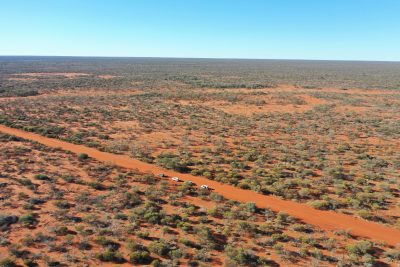
A new group has been formed in Western Australia with the aim of assisting Indigenous landholders to enter carbon markets. Photo: ABC Foundation
A NEW Indigenous carbon farming body has today been launched, with the aim of assisting native title groups and Aboriginal leaseholders to enter carbon markets.
The Western Australian-based Aboriginal Biodiversity Conservation (ABC) Foundation has created the Aboriginal Carbon Environmental Services (ACES) organisation with a framework based on sending profits back to the communities where the projects will be held.
At this point, the new body will operate in WA – opening up about 25 pastoral leases to carbon projects.
Most of Australia’s carbon projects, through soil and vegetation methods, are run by private carbon aggregation companies – who own land for projects or facilitate projects for other landholders. ACES plans to operate in partnership arrangements.
In a statement, the ACES said the “On Country” carbon model will focus on facilitating activities already happening on Indigenous lands.
“The Foundation saw the potential of carbon farming for Aboriginal Corporations and Native Title land-owners to underpin commercial, cultural and heritage activities, while assisting with the restoration of country,” the statement said.
“As Human-Induced Regeneration (HIR) carbon projects continued to be registered across the WA Southern Rangeland region, ABC was quick to identify that the commercial carbon farming models being developed were not aligned to the social impact benefits of the Foundation’s operations.”
The new model was supported by the Indigenous Land and Sea Coropration, who Beef Central contacted to see if there were plans to expand the program into other states.
Carbon Market Institute CEO John Connor said right across Australia there was still plenty of potential for carbon farming projects on Indigenous-owned land.
“We already have large areas of land under carbon management with the Indigenous Land and Sea Corporation, who are a member of CMI,” Mr Connor said.
“But it depends on the country and what you can grow there. People have looked into carbon farming in deserts and you need such large tracts of land to make it worth while.
“It is also a very regulated industry and requires a lot of audits, which can be a bit expensive too.”
Mr Connor said programs like the ACES, which looked at other benefits like employment, had a lot of potential in the carbon market.
“Carbon is an unusual commodity and it is valued for more than its benefits to carbon and the environment,” he said.
“You’ll often see companies buying credits off Indigenous companies and they become the front page of the company’s sustainability reports.”
In the short-term, the ACES is hoping to sign on new partners in Western Australia.
“The Carbon Model ensures that maximum value derived from the sale of Carbon Credits returns to the Aboriginal leaseholder and the relevant Native Title Body,” the statement said.
“With 100pc of all co-benefits generated by the Carbon project aimed to benefit the local Aboriginal community through training, employment, cultural and heritage activities.”

The last two paragraphs details the commitment of the ABC in respect of the activities of ACES, and congratulations to the ABC for that.
Having said that, one hopes, prays and implores that the ACES does business selectively with Australians or Australia friendly nations, and not with any (you know which) high emitting Asian nation.